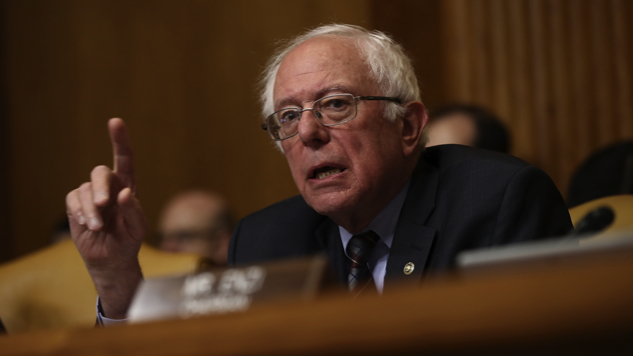
Bernie Sanders | Credit Win McNamee/Getty
Senator Bernie Sanders recently faced criticism for his questioning of Russell Vought during Vought’s confirmation hearing for Deputy Director for the Office of Budget Management. Sanders brought up a blog post in which Vought wrote that Muslims who “have rejected Jesus Christ” stand “condemned”. Sanders called this language “hateful” and said he would vote against Vought’s confirmation. Many leaders from a variety of Christian denominations have responded that Vought’s belief is a core tenant of Christianity, and one shared by many Americans.
Those who thought Sanders’ comments toward Vought were inappropriate, or even unconstitutional, argue that he was imposing a religious test on Vought. Some Muslim advocates have defended Sanders, saying that in the current political climate it’s important to ensure that nominees will treat all Americans fairly. This difference of opinion perhaps stems, not only from the different political or religious ideologies of those who are responding to the encounter, but also in whether they viewed Vought’s beliefs or his behavior as under attack.
One of Tanenbaum’s core principles is that when religious issues emerge in the workplace, employers should focus on behavior and not belief. Employees are free to believe what they want to believe, and it is not appropriate (or, in many cases, legal) to argue with someone about their deeply held convictions. That said, it is appropriate to have standards for behavior in the workplace, and to require employees to meet those standards. For example, an employee may believe that homosexuality is an abomination, and is entitled to that belief. If, however, the employee starts harassing LGBT colleagues or posting defamatory statements on the company’s intranet page, such behavior would threaten to create a hostile work environment and the company would then be within its rights to discipline that employee.
Similarly, Vought has both a moral and constitutional right to his religious beliefs, including his belief that non-Christians will go to hell. If Sanders was criticizing Vought simply for holding that or any other religious belief, it would be inappropriate. However, Sanders’ office has since stated that he was concerned, not with Vought’s beliefs themselves, but whether the expression of those beliefs would prevent Vought from “carry[ing] out the duties of his office in a way that treats all Americans equally.” That criticism is far more valid because it focuses on what Vought’s behavior would be like if confirmed.
In the future, politicians who are concerned about nominees’ statements on religion should be careful to frame their concerns around the nominee’s behavior, not their beliefs.
By: Eliza Blanchard
Assistant Director, Workplace & Health Care Programs